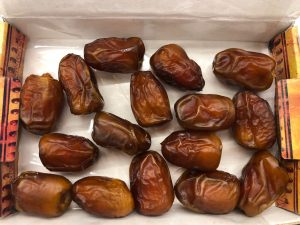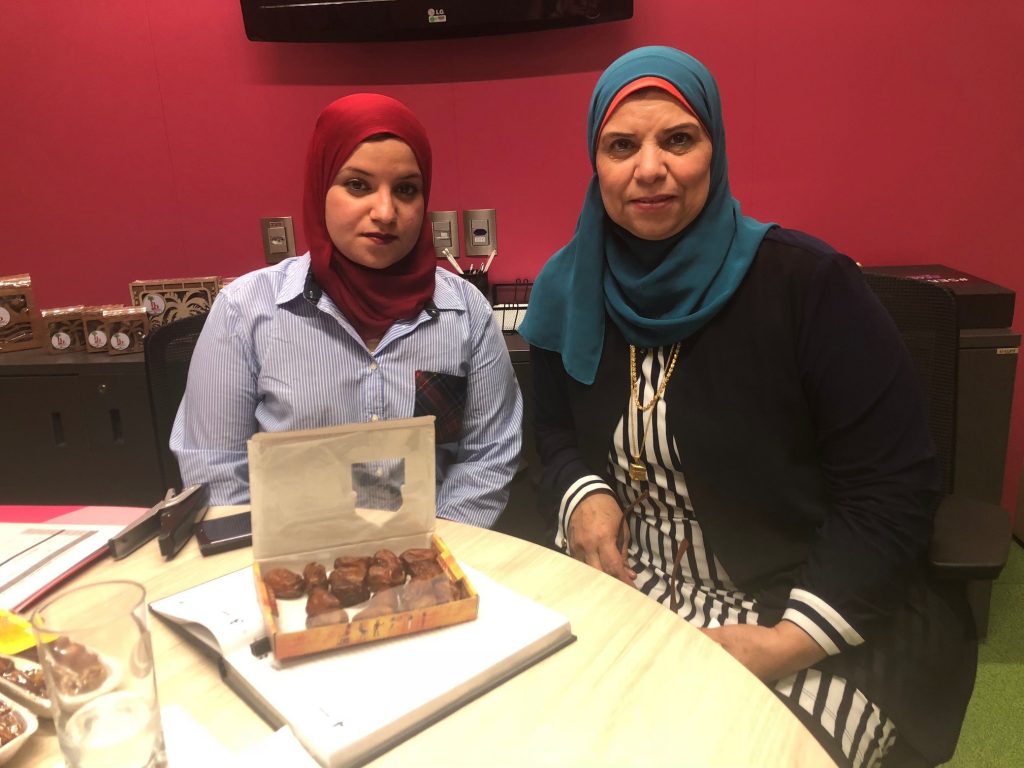São Paulo – The export manager and the vice president of Egyptian date company Egyptian Export Center HB, Basma Al Banna (in the picture, left), and Faten Fouad (in the picture, right), respectively, are in Brazil for B2B meetings with over twenty Brazilian companies. In addition to Brazil, they’re also expecting to sell to Argentina and Chile, taking advantage of the facilities brought by the Mercosur-Egypt Free Trade Agreement.
This is the second time that the company has sent representatives to Brazil. In May, they exhibited their products in the stand of the Arab Brazilian Chamber of Commerce at Apas Show, the largest supermarkets fair in South America, to present their product to the Brazilian market. The business women visited the Arab Chamber, in São Paulo, this Monday (24) for meetings with potential buyers and they’re optimistic. “We hope to strike deals with markets, specialized stores and distributors throughout this week,” said Banna.

According to the manager, the dates available in Brazil usually come from Israel and Tunisia. “Our dates have a premium quality, they are semi-dried, not sticky as the others, you can touch it and it won’t get your hands messy; we also want to show that we have competitive prices and focus on the fruit’s qualities, which is full of vitamins and is very good for people’s health,” she said.
The company produces 6,000 tons of dates per crop in the region of Monufia, 80 km from Cairo. Founded 30 years ago, HB exports to many countries such as Japan, South Korea, Malaysia, Vietnam, South Africa, Canada, Australia, plus some markets in Europe, and now it wants to enter Latin America. “We’re expecting to increase output in 30% in the next crop, we have bought new machinery that cleans, dehydrate and packages the dates, which will increase productivity and ensures hygiene, since the date is not touched by anyone until it is packaged,” explained Banna.
The company has earned many quality certifications, according to Banna, such as the ISO 9001 (quality management systems), the ISO 22000 (food safety management), the HACCP (Hazard Analysis and Critical Control Points), the BRC (food safety) and the Global Gap (Good Agricultural Practice).
HP also produces other fresh fruits and vegetables, but it believes that for Brazil, the product presenting the greatest differential is the date, which is not produced by the country since it needs a desert climate. “We analyze the culture of each place to where we export, to some, we sell more during Ramadan, to others, more in the time of Christmas and the New Year’s, it depends largely on the culture of each country,” said Banna.
For further information, visit the company’s website.
Translated by Sérgio Kakitani




